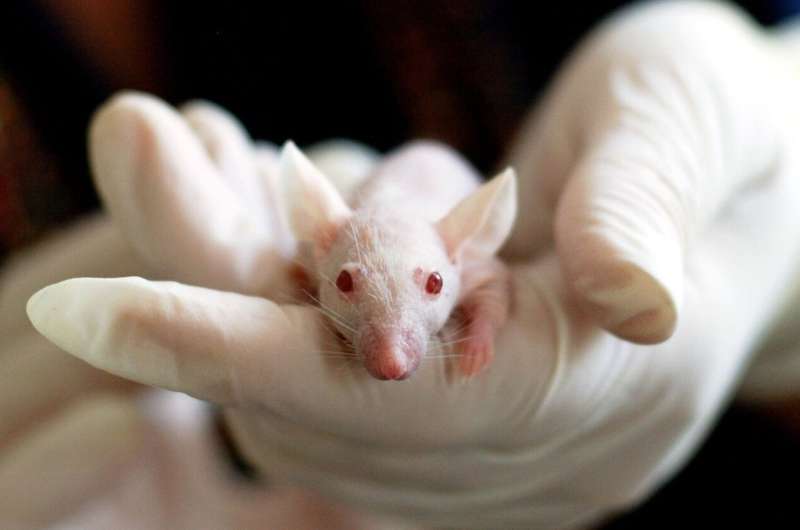Credit: Pixabay/CC0 Public Domain
The first things that mouse newborns touch and eat establishes their native microbiome, which is often influenced by their mother during birth and throughout nursing. Although diet has been a known contributor to obesity in all stages of life, the effects of nursing mothers' diets is an ongoing investigation. In a paper published December 8 in the journal Cell Host & Microbe, researchers find that when nursing mouse mothers are fed a low-fiber diet, their offspring's microbiome is permanently altered, leading to gut inflammation and obesity.
"We wanted to see what would happen if we gave a low-fiber diet to the mothers at the time their pup's microbiome is being wired," says senior author Andrew Gewirtz, a microbiologist at Georgia State University. "Would we see an increase in obesity in the pups due to an altered gut from their moms' diets?"
Obesity is often attributed to diet, and the consumption of energy-dense meals, such as "fast foods." However, so called "junk food" has been around for decades, but obesity rates continue to climb. Gewirtz and his team sought to learn whether the early microbiome could be an underlying factor that changed one's susceptibility to the ill effects of these diets.
The researchers gave nursing mother mice two different diets, either a fiber-balanced "chow" traditionally used in research mouse studies or a low-fiber food. After three weeks of nursing, the pups were weened, and their microbiome was analyzed through fecal samples.
There was an abundance of Proteobacteria in both the pups and the mothers who were fed low-fiber diets when these were compared to mice fed a traditional diet. Along with altered microbiomes, both mothers and pups had intestinal disruptions, and the pups nearly doubled in weight.
"I was shocked at how quickly the mice gained weight when they were exposed to this diet," says Gewirtz. "The data was striking, and I didn't believe it at first. It took many replications to convince me."
Proteobacteria is a large, well-studied group of bacteria that have surface proteins that can easily activate the innate immune system. This activation alerts the body of an illness and triggers the release of chemicals that cause inflammation. The bacteria also alter the intestines in a way that causes greater uptake of lipids from the diets, contributing to a rise in obesity.
Gewirtz and his team believe that regular levels of fiber help fuel the microbiome in a way that allows diverse bacteria to thrive. It may be that when the fiber is gone, the bacteria that needed it for nourishment die off and Proteobacteria, who don't eat fiber, can grow unchecked.
The gut disruption in the pups nursed by mothers on low-fiber diets had long-lasting effects. After being on the traditional diet for nine weeks after weening, the guts of the low-fiber mice still had unusually high numbers of Proteobacteria, and the pups continued to gain weight.
"I hope this work can shed light onto how complex our metabolism and microbiome really are and how our early life experiences can shape us for the rest of our lives," says Gewirtz.
More information: Andrew T. Gewirtz, Maternal fiber deprivation alters microbiota in offspring resulting in low grade inflammation and predisposition to obesity, Cell Host & Microbe (2022). DOI: 10.1016/j.chom.2022.10.014. www.cell.com/cell-host-microbe … 1931-3128(22)00527-3
Journal information: Cell Host & Microbe
Provided by Cell Press
























